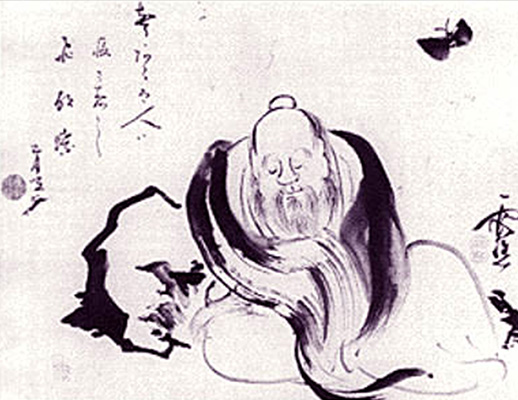Is Reality an Illusion?

Since ancient times, this has been a puzzling question.
How real is our reality?
“Dreaming of a Butterfly” poses an interesting perspective.
It’s a story about a man, Zhuang Zhou, who dreamt he was a butterfly.
He was joyfully flying around and didn’t know he was Zhuang Zhou.
And, when he woke up, he wasn’t sure.
Was it him, Zhuang Zhou, who had dreamt he was a butterfly?
Or was it the butterfly dreaming that it was Zhuang Zhou?
Makes you think, right?
A story from ancient China of 476–221 BC makes you think!
Over the years, up to this day, many theories try to explain the “realness” of our reality.
And most of them agree on one point.
The reality we experience is, most probably, an illusion.
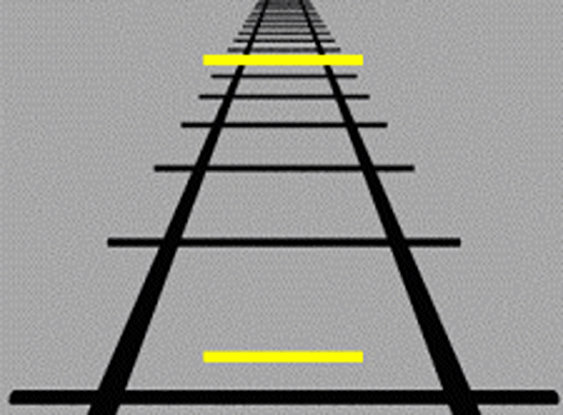 Image Credit: Ponzo illusion.gif by Public domain, via Wikimedia Commons
Image Credit: Ponzo illusion.gif by Public domain, via Wikimedia Commons
In this article I’ll mention five of these theories, which I find mind-blowing!
Starting from the Many-Worlds Interpretation (MWI)
I already discussed this theory in a previous article.
You can check it out here:
Exploring the Universe: Many-Worlds Interpretation
For now, I’ll just mention it - in a (tiny) nutshell.
First proposed in 1957, MWI suggests that every possible outcome, of every quantum event, exists in one of (possibly) infinite number of universes.
Think of the universe splitting, creating worlds, for every single possibility.
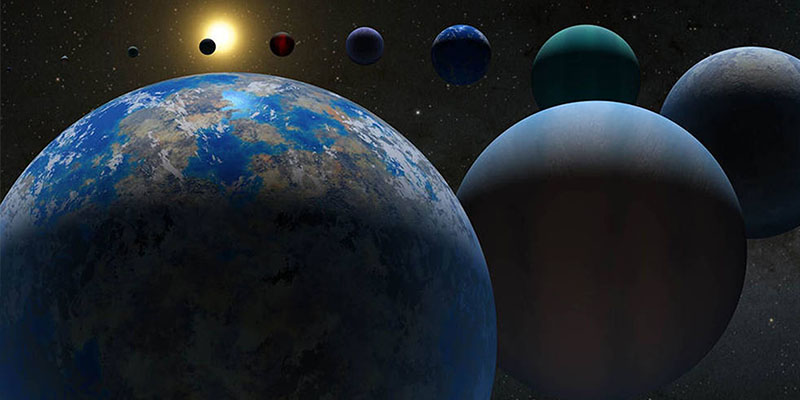 Image Credit: NASA/JPL-Caltech
Image Credit: NASA/JPL-Caltech
Remember the last time you missed a chance?
Well, another “you”, in another world, didn’t!
All your dreams do come true, but in different worlds.
Of course, it’s a very interesting theory.
But the question about the truth of our reality here, in this world, remains unanswered.
How come a quantum event is possible to occur in the first place?
But let’s not go down the rabbit hole.
Let’s continue with the Holographic Principle.
This theory, proposed by Leonard Susskind in the 1990s, suggests that we live on a 2D surface at the boundary of the universe!
Like a hologram, the 2D surface contains information of a 3D image.
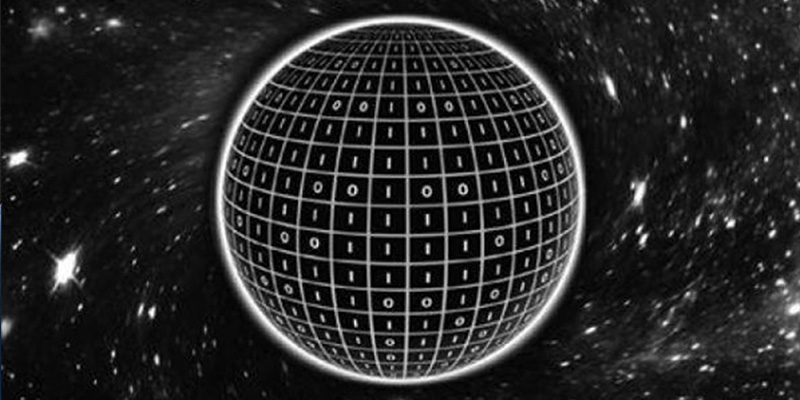 Image Credit: T.B. Bakker / Dr. J.P. van der Schaar, Universiteit van Amsterdam.
Image Credit: T.B. Bakker / Dr. J.P. van der Schaar, Universiteit van Amsterdam.
Everything, including us, is information on the 2D surface!
The 3D world we perceive, is in fact a projection of that information.
Meaning, our entire universe is a hologram!
And we, and everything in it, are holographic representations of the information encoded on its surface. Thought-provoking, yes?
If this is true, then our reality is certainly an illusion.
This makes me think that everything forms part of a collective consciousness.
Maybe there is one mind that creates the universe and all energy in it!
I’ll definitely go into theories about the mind and consciousness – but in a separate article.
For now, I’ll move on to the Simulation Hypothesis
Proposed by Nick Bostrom in 2003, this theory suggests that we live in a computer-generated simulation.
Everything is an artificial simulation: the earth, the planets, the stars, you, me.
The whole universe and all in it - a simulation!
Do you think this could this be true?
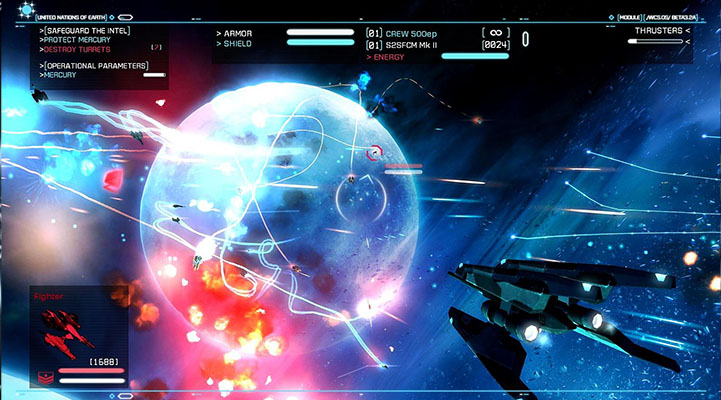 Image Credit: Born Ready Games - http://strikesuitzero.com/, CC BY-SA 3.0, via Wikimedia Commons
Image Credit: Born Ready Games - http://strikesuitzero.com/, CC BY-SA 3.0, via Wikimedia Commons
Are we in a futuristic supercomputer run by a kid in a futuristic garage who is playing a futuristic Sims game, in which we are the characters?
Are we just a set of algorithms?
I am thinking that, if this is true, there must be some evidence of it being true.
For example, wouldn’t the computer’s processing power leave an imprint on our universe?
But, I guess, even if we found such evidence we wouldn’t know if it was really “real”.
It might be just another layer of our simulated reality.
Ok, the simulation theory is fascinating, agreed. It’s so mind-bending that I could not exclude it from this list.
But I must say, it’s not my favourite theory.
Firstly, it removes our free will.
One may question how “free” our free will is, considering our background, culture, religion, “common sense” and all those other factors that shape our behaviour and, in some way, determine our decisions.
But this is different.
This theory suggests that we are a set of algorithms programmed to act and react in certain predetermined ways.
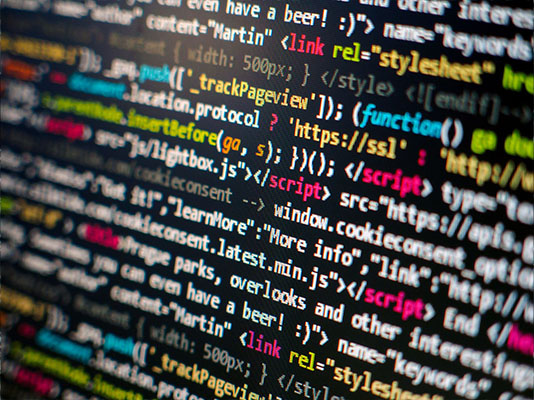 Image Credit: Martin Vorel, CC BY-SA 4.0, via Wikimedia Commons
Image Credit: Martin Vorel, CC BY-SA 4.0, via Wikimedia Commons
Secondly, it doesn’t really give us any answers.
I mean, even if we are in a simulation, what about the kid in that futuristic garage?
Is that kid also in a simulation?
And when does this end?
If we are a simulation within a simulation within a simulation… who created the first simulation?
Thirdly, this theory can never be proven to be true.
How can the truth of our existence be impossible to prove?
If you are thinking that creating a simulation would be sufficient evidence that we are in a simulation, I get your point.
But I am not sure I agree.
I think creating a simulation would merely show that the simulation theory is possible.
That’s it.
A mere possibility.
Saying that, if we consider MWI to be true, a possibility is not so “mere” anymore.
Since every possibility has 100% chance of occurring in some world.
See? Everything depends on our perspective.
Which brings me to the Mathematical Universe Hypothesis (MUH).
This theory was first proposed by Max Tegmark in 2007 and suggests that mathematics is not just a tool to describe reality.
 Credit Image: University of Edinburg
Credit Image: University of Edinburg
Mathematics is reality!
And anything that is mathematically defined, exists.
In accordance with the MUH, a mathematical structure can predict and describe every physical event.
In other words, the physical world and mathematical equations are one and the same!
In this context, we, and all other conscious beings, are self-aware substructures within the mathematical universe.
All perceptions and interactions are described in mathematical terms.
This is somewhat true. Mathematics perfectly describe our universe.
In quantum mechanics, mathematic equations have even described particles, centuries before found by scientists!
Since mathematical equations also describe other worlds, does the MUH suggest that a multiverse exists?
Yes! This theory indicates that our observable universe is just one instance, in a much larger mathematical multiverse.
There are possibly an infinite number of universes described by different mathematical structures.
So interesting!
And finally, the Interface Theory of Perception
This theory was proposed by Donald Hoffman and started gaining popularity around 2015.
It suggests that evolution has shaped our senses to observe reality in a different way.
Our perception is trained to hide the complexities of the true world, and to present a simplified reality.
We see what we need to see, which is not necessarily the truth.
This helps us navigate the world efficiently and focus on our survival.
Don’t we do something similar in our everyday life as well?
I know I do! I auto-delete things I don’t want to remember, and auto-change memories that serve me no good.
And I don’t observe reality the same way you do.
We all have our own perception, which shapes how we experience reality, right?
So, this theory makes sense.
I can see how we would evolve over time to completely alter reality in our own benefit.
Instead of seeing the “real picture”, we see a “preferred picture”, designed to help us achieve our goals.
In accordance with Donald Hoffman, our reality is like our computer's desktop.
We see a nicely designed user-friendly interface, which hides the underlying complexity of the computer's operations.
Just imagine wearing a VR headset.
 Image Credit: By DC Studio on Freepik
Image Credit: By DC Studio on Freepik
In a VR game, we move around the scenes, but we never see the complex code running behind these scenes.
This theory implies that we are wearing a VR headset in the VR Game called life.
And, similar to some of the rules of quantum mechanics, this theory suggests that the moon does not necessarily exist when we are not looking at it.
Intriguing!
So, this concludes my list of the 5 most mind-blowing theories, suggesting that our reality is an illusion.
My thoughts?
I believe anything is possible!
The reality we observe might in fact not represent the objective reality.
We’ve seen this proven time and time again, even with quantum mechanics.
A particle may be a wave and a wave may be a particle.
And before observation, it’s impossible to know which of the two it really is.
It’s just a sea of possibilities.
Upon observation, we then observe what we think is reality.
But is it?
I also tend to believe we are all connected in some way (we are made of the same particles after all), and we collectively create the world we live in.
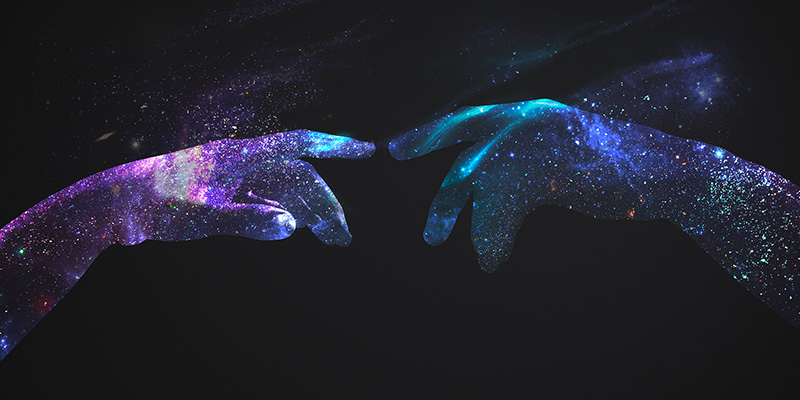 Image Credit: By DC Studio on Freepik
Image Credit: By DC Studio on Freepik
Maybe we form part of infinite intelligence, changing form, from energy to matter, travelling from infinity to time and space, just to experience a short fun adventure.
I am not sure. Who knows for sure?
What I do know is that constant movement and change is a fundamental characteristic of reality.
As the Ancient Greek philosopher Heraclitus stated in 535-475 BC:
"Everything flows, never remains the same".
(“Τα πάντα ρει, μηδέποτε κατά τ'αυτό μένειν“).
What are your thoughts?
Do you think reality is an illusion?
